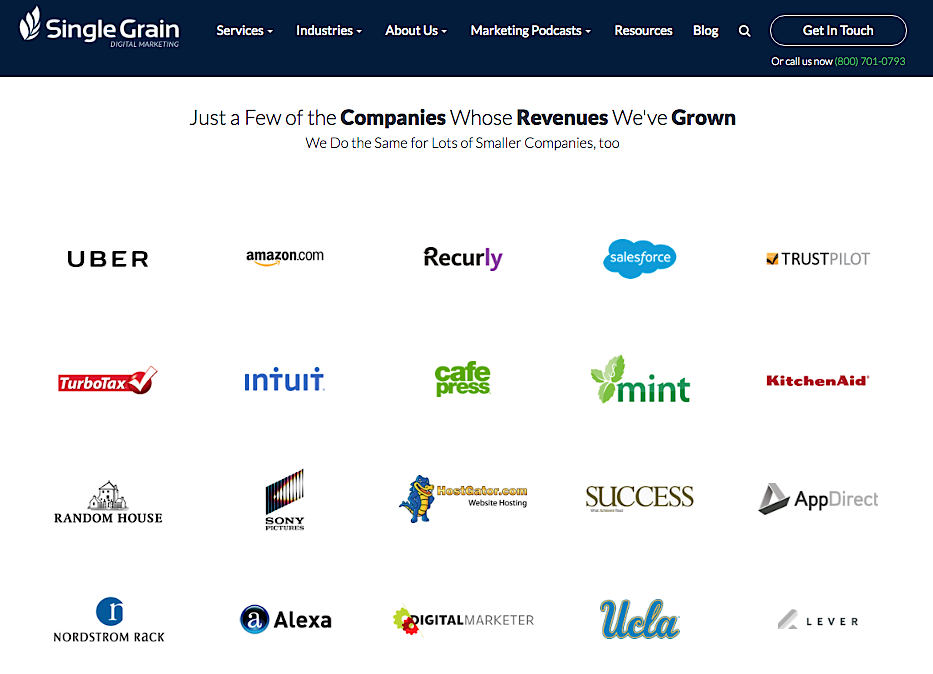What should your first marketing job be: agency-side or brand-side?
Here are my thoughts on getting that first marketing job.
Agency-Side vs. Brand-Side (a.k.a. In-House)
When you’re working at a marketing agency, you’re helping clients grow. You’re doing a lot of different things in a lot of different verticals and industries. Often, you’re working on what I like to call “superficial” campaigns. In other words, you’re usually filling a temporary gap in the client’s marketing team.
That being said, agency work is different on a day-to-day basis and you learn a ton about various industries and types of companies, about both B2B and B2C.
Brand-side work can be similar to agency work, especially when you’re working at a startup. Often, the difference is that when you’re brand-side (also called in-house), you’re more specialized and you’re getting all your experience in one industry, and often in one niche. But you really get to dive in fully in that niche.
Keep in mind, for better or for worse, that the earlier stage a company is, the more work you have to do, and the more hats you have to wear.
Get a Free Marketing Consultation
The Best Poker Players Are the Ones Who’ve Seen the Most Hands
Neil is a bit biased because he’s never really had a 9-to-5 job, other than cleaning restrooms and picking up trash. He started agency-side with his own agency and he thinks it’s made him better than most marketers.
Being a really good marketer is like being a really good poker player. Some players are just exceptionally good and sometimes this could be due to inherent talent. For example, maybe one poker player is just better with numbers and probability. But when it comes down to it, that’s a very small factor.

(Source)
The top-notch poker players are the best because they’ve seen the most hands. The more hands you’ve seen in poker, the better are because you know what to do no matter what hand you’re dealt. It’s the same with agency-side marketers.
When you’re working at an agency, you get to see so many types of businesses and you can learn from each one of them. You get data from so many different markets and segments, which makes you a better, more well-rounded marketer. If you just worked at one company, you only get experience within that sector and you only know how to do work for that type of company.
But even if you’re in the healthcare space and you hop around from healthcare company to healthcare company, what works for one company won’t always work for the other.
When you’re in the agency world, you see so much data from different industries and companies, and you learn what kind of strategies work overall, as well as which ones don’t, and why.
Learn More: The Strategy That Skyrocketed Hotjar to $1 Million ARR in 6 Months [podcast]
Applying to Work at an Agency
When you’re applying to an agency job, you have to ask them directly, “Hey, if I wanted to learn other things, if I wanted to try other things, are you going to let me?”
Face it — some agencies are straight up just like sweat shops where they want you to be a cog in a machine and they’re not going to have a lot of flexibility. They want you to only focus on one area and you’re not going to be able to grow.
I think the growth potential, whether it’s agency or in-house, has to be massive. You have to be able to grow, or else you’re just dying.
Related Content: 10 Growth Newsletters To Make You A Smarter Entrepreneur
Now, I was lucky enough that the agency I started at was very open-minded. The SEO department was new and I came in as the SEO link builder and this was when I was 24 years old. I started out doing link building, but I quickly took on other responsibilities. I wanted to do more because I felt like we weren’t being the best that we could be and I wanted to add as much value as possible.
No agency is going to stop you from learning and growing if they're open-minded. Share on XMy Personal Opinion: Agency Is the Way to Go
I tried a lot of different things. We got to work with a lot of big brands and I learned how to manage clients. But in three months I decided, “Wow, this is a great place to work but I need to move on.” So I actually moved in-house after that.
I went to work for a company called Break Media (which was acquired by Defy Media). I was their in-house SEO strategist. And I have to say that, compared with my agency experience, I don’t feel like I learned as much when I was brand side.
Agencies are definitely the place to start because you’re going to be able to get your feet wet in a lot of different areas. They’re going to be open to a lot of different strategies.
A lot of the agency owners ironically are not really up-to-date on marketing because they’re so focused on running the business.
But, in my experience, agency owners make up for that lack of knowledge by hiring tremendous talent. The people employed in the agency world tend to be bleeding-edge workaholics. They also have more tactical experience and not just a lot of theory-based formulas in their head. They’ve been implementing and testing, because if they don’t succeed, they get fired.
When you work full-time at a startup or at a company and someone in the marketing department doesn’t perform, what happens? They usually still have their job.
It’s much harder for a company to fire you when you work full-time than it is for a business to fire an agency that they just hired on a contract basis. It’s way easier for them to fire the agency, and for that reason, the agencies have to produce.
Related Content: Effective SEO Techniques that Work
But Brand-Side Can Certainly Be the Right Fit
Once, I was the VP of Marketing at another startup.
There was a ton of growth potential because I had never been in an executive role before, so there was a lot for me to learn, and at the same time the startup was strapped for cash. There was only a few months of cash left in the bank, so there was a lot of pressure on me to figure things out or else it was game over.
In that scenario, when you’re working in-house but at the executive level, you’re constantly learning. First of all, I had to learn how to manage people. As an executive at a startup with 50 people, you have to be able to roll up your sleeves.
Basically, one month in, the CEO pulled me aside and said, “Hey, if we don’t hit numbers this month, we’re going to have to let you go, just straight up. And everybody’s families, they’re riding on your shoulders right now. There’s 54 people depending on you.”
No pressure, right?
Now, if this were a big, established company rather than a cash-strapped startup, they would have just let me sit there. They probably wouldn’t notice that I wasn’t doing anything at all. I’m going to be very, very honest—sometimes at Break I would take two to three hour lunches because I knew I could slip by undetected.
But that’s a scenario you don’t want. You don’t want to be bored and unchallenged at your job.
Learn More: Jared Fuller On How He Skyrocketed PandaDoc from $1M ARR to $5M ARR in a Year (5X Growth!) [podcast]
Final Verdict: Start at an Agency
As you keep learning more and more, the job opportunities are going to come by the boatload. As mentioned, Neil has never taken a 9-to-5 job; instead, he started his own companies and agencies. But sometimes he’ll interview for 9-to-5 jobs just to see what his value is in the eyes of bigger companies.
And he’ll be the first to tell you, some of these jobs are paying an arm and a leg (like $4–6 million dollars per year). That’s a lot of money for working for someone else in-house.
But the reason Neil is getting these really high-priced offers is because he’s worked agency-side for so long. He knows how to provide results because he’s seen data across so many different verticals and industries. That’s what makes him so valuable to companies, no matter their size or industry.
So if you’re starting off, try to avoid the 9-to-5 job if possible. Go the agency route, even if the agency pays half the amount; it doesn’t matter. The amount of knowledge you’ll end up getting from the agency will more than make up for it.
In the long run, you will be way better off and further along in your career by taking your first marketing job at an agency.
Get a Free Marketing Consultation
This post was adapted from Marketing School, a 10-minute daily podcast in which Neil Patel and Eric Siu teach you real-life marketing strategies and tactics from their own experience to help you find success in any marketing capacity.







